Serbia expects economic growth to continue next year
The annual The Economist conference called ‘The World in 2022” was held at the National Assembly of Serbia. In front of numerous members of the diplomatic corps, representatives of state institutions, local governments, companies and the media, a number of officials spoke about their view of the year that is about to end and their predictions regarding a direction Serbia will take in the future, as well as recommendations on what steps would be good for achieving further progress and development.
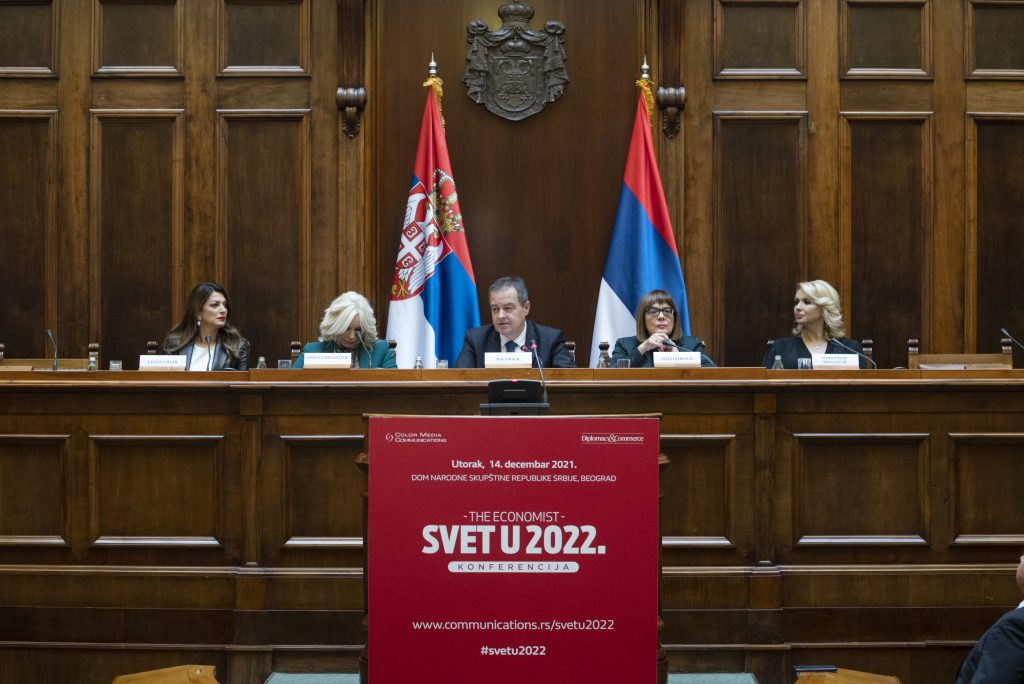
Ivica Dačić, Speaker of the National Assembly of the Republic of Serbia, spoke at the opening of the conference, as did Aleksandar Vučić, President of the Republic of Serbia, who officially opened the conference; Zorana Mihajlović, Deputy Prime Minister and Minister of Mining and Energy; Maja Gojković, Deputy Prime Minister and Minister of Culture and Information; Darija Kisić Tepavčević, Minister of Labour, Employment, Veteran and Social Affairs; Zoran Radojičić, Mayor of Belgrade; Françoise Jacob, UN Resident Coordinator in Serbia; Deyana Kostadinova, Director of UNICEF Serbia; Francesca Bonelli, UNHCR Director for Serbia and Alessandro Bragonzi, Head of the EIB Regional Office for the Western Balkans. You can see more about their presentations by clicking on this link.
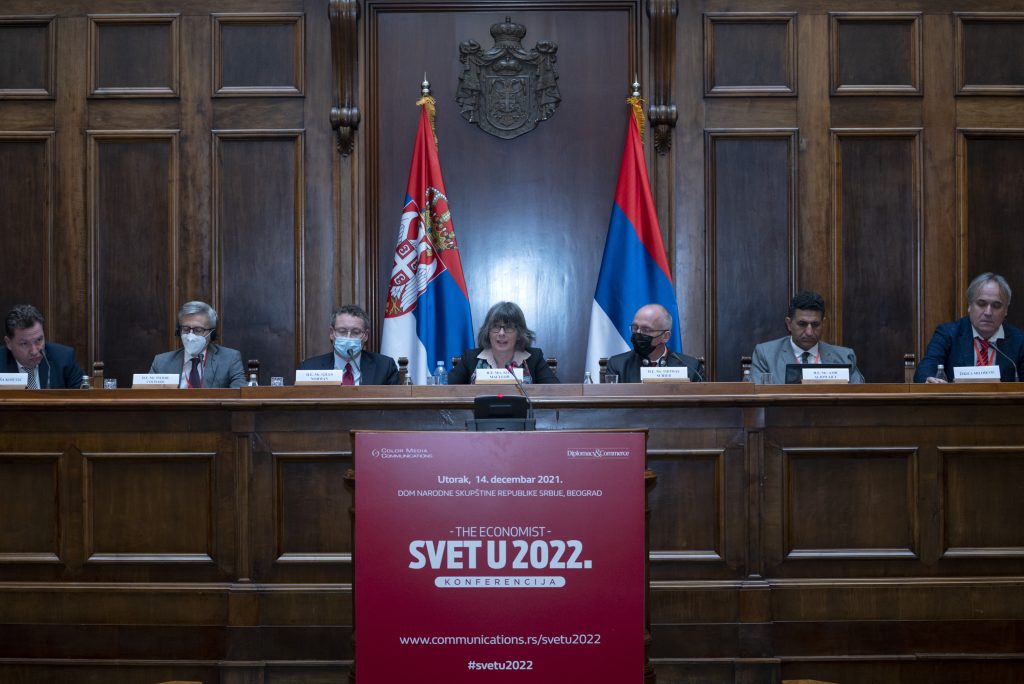
H.E. Thomas Schieb, Ambassador of Germany, H.E. Sian MacLeod, Ambassador of the United Kingdom, H.E. Giles Norman, Ambassador of Canada, H.E. Pierre Cochard, Ambassador of France and H.E. Amr Aljowaily, the Egyptian Ambassador to Serbia, who are joined by Nebojša Košutić, acting Assistant Minister of Foreign Affairs and Head of the EU Sector took part in the first panel titled “Brave New World: What will the world order look like in 2022?” Žikica Milošević, the editor of The Economist in Serbia, was the panel moderator.
The ambassadors gave their forecasts and answers to key questions regarding the further development of international relations from the point of view of the countries they represent. In addition to the fight against the COVID-19 pandemic, which continues to jeopardize the plans of all countries in the world, new alliances will be formed around common economic, security and political goals. We are going to see the epilogue of the current energy crisis, new governments and the emergence of new ‘stars’ on the international ‘sky’. What is certain is that only through cooperation can we achieve the stability that is necessary for the further development of every country in the world.
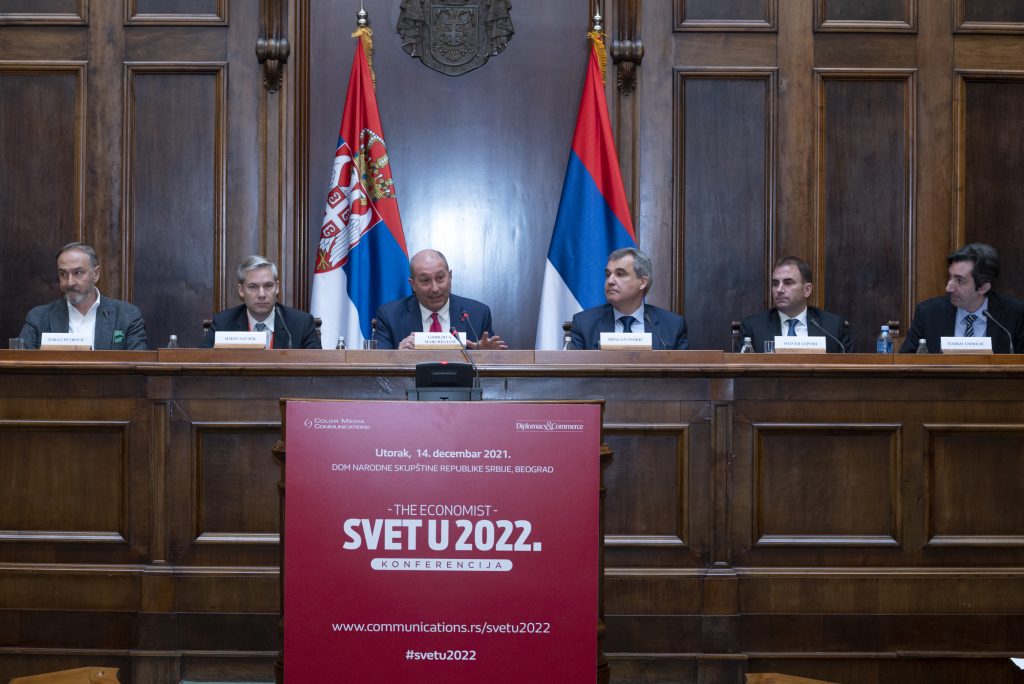
Representatives of bilateral chambers and business associations – Zoran Petrović, President of AmCham, Dr David Landsman, President of the British-Serbian Chamber of Commerce, Dragan Stokić, President of the French-Serbian Chamber of Commerce, Giorgio A. Marchegiani, President of the Italian-Serbian Chamber of Commerce, Oliver Lepori, Executive Director of the Japan Business Alliance in Serbia and Simon Savsek, EIB economist – spoke in the second panel called “Economy before and after the pandemic: Challenges in 2022”, including about the Serbian economy next year. Marko Andrejić, Editor-in-Chief of Biznis.rs, was the panel moderator.
Following the panel discussion, Natali Delić, Director of the Directorate for Strategy and Digital on the topic – Digital Ecosystems through Innovation and Partnerships, presented the case study of Telekom Srbija.
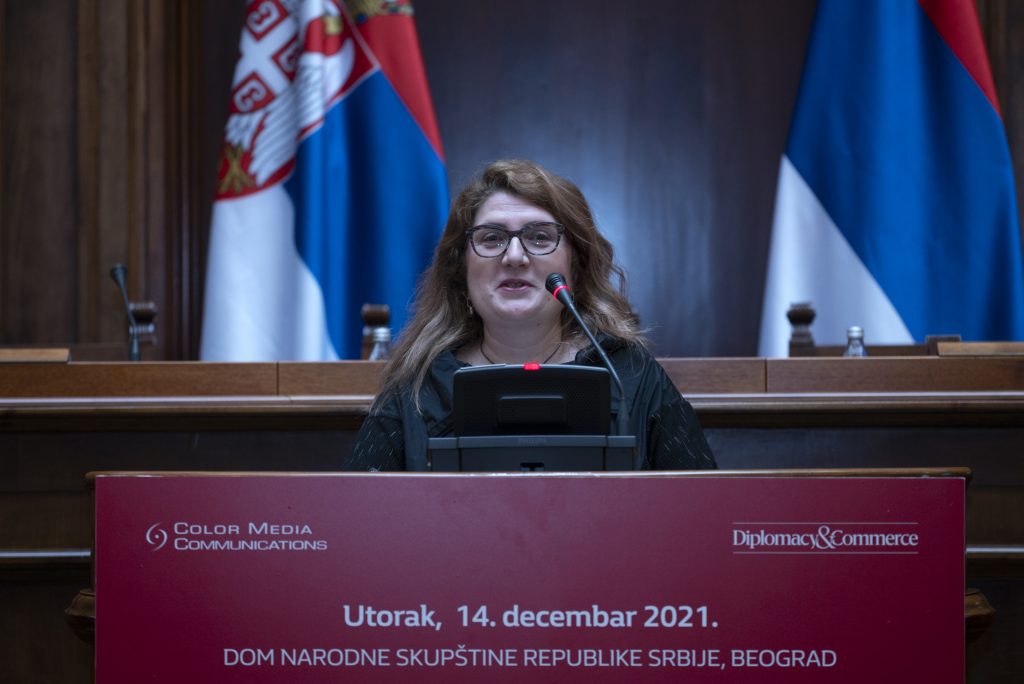
“The digital age requires a new approach to business. Building a digital ecosystem is a response to the challenges of the digital age, where partners would communicate through digital platforms and establish new models of cooperation through an automated process where services would be delivered to users much faster,” said Ms Delić and added: “Telekom Srbija is in the best position to be a link between all market stakeholders and thus make its contribution to the digitalization of Serbia.”
Nenad Pešić, from the Egzakta Company, spoke on the topic “Localization of the Serbian economy”.
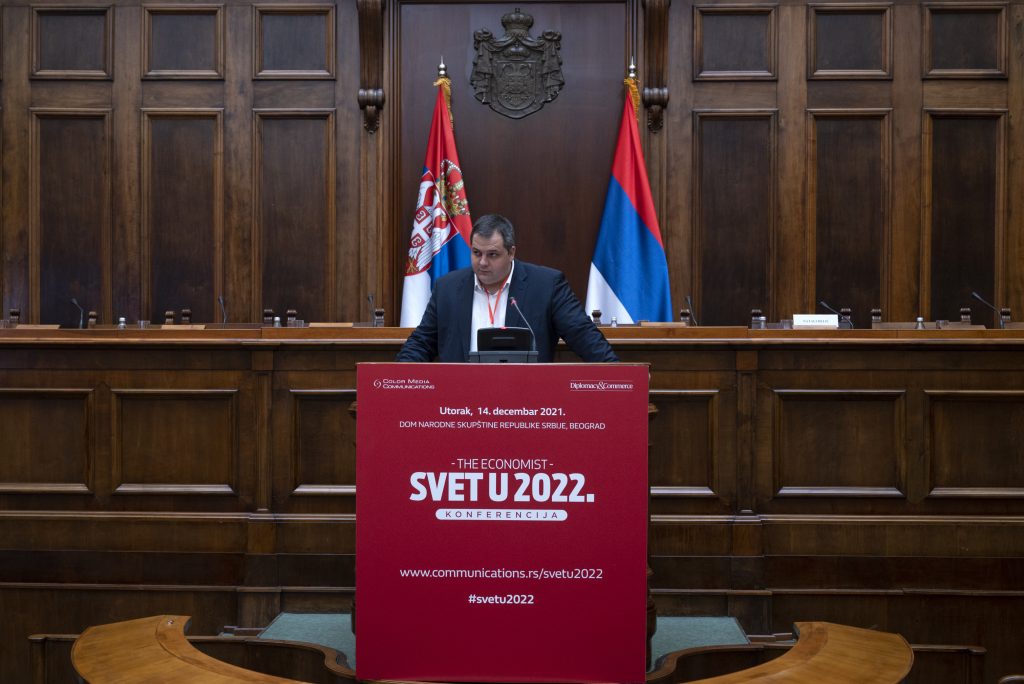
“We believe that the Republic of Serbia is currently at a turning point and that it needs to make a smart and correct decision. We believe that the right path is the localization of the Serbian economy. Localization is a process of strategically directing the economy towards the development of local business. Successful implementation of the localization is possible only in a structured way and provides all interested parties to take part in the localization. Systematic development of the business climate, economy and consumers will enable Serbia to gradually move towards localization. We, at Egzakta, believe that localization should be developed gradually under the auspices of the National Plan for Economic Transformation, according to the proposed methodology,” said Mr Pešić.
The participants in this panel assessed the investment climate in Serbia “as favourable”, but agreed there is still room for further progress. Serbia continues to maintain its position as a country that has received an enviable number of foreign investments, but the ongoing issues and focusing on the circular economy leave enough room for further work on improving the country’s legislative framework and boosting its finances to make Serbia’s image even stronger.
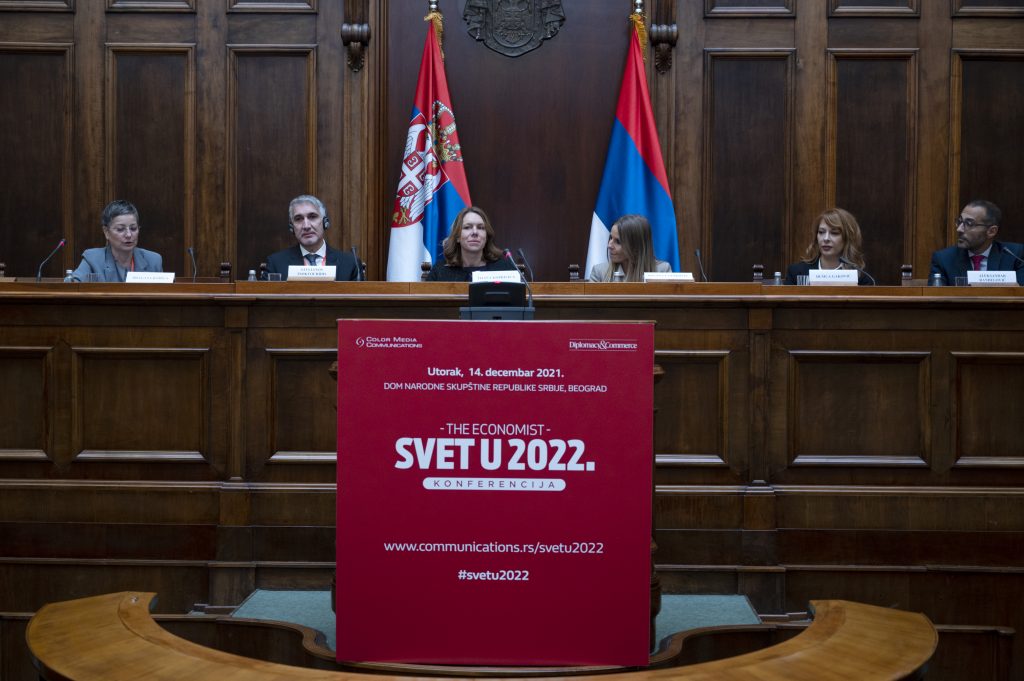
In the third panel titled “What to do after 2021? – Global Challenges and Local Experiences”, moderated by Dragana Korica, Executive Director of the Green Building Council of Serbia, the panel participants discussed the topic of green economy and sustainable development – Stylianos Tsoktouridis, MSc, Managing Director of Alumil YU Industry AD, Dušica Gaković, Project Leader, Deka Inženjering d.o.o., Jovana Cvetković, Director of Development, Technical Operations and Innovations at MPC Properties, Tijana Koprivica, Director of Sustainable Business at Delta Holding and Aleksandar Randjelović, Leasing Expert at GEFF Serbia Leasing.
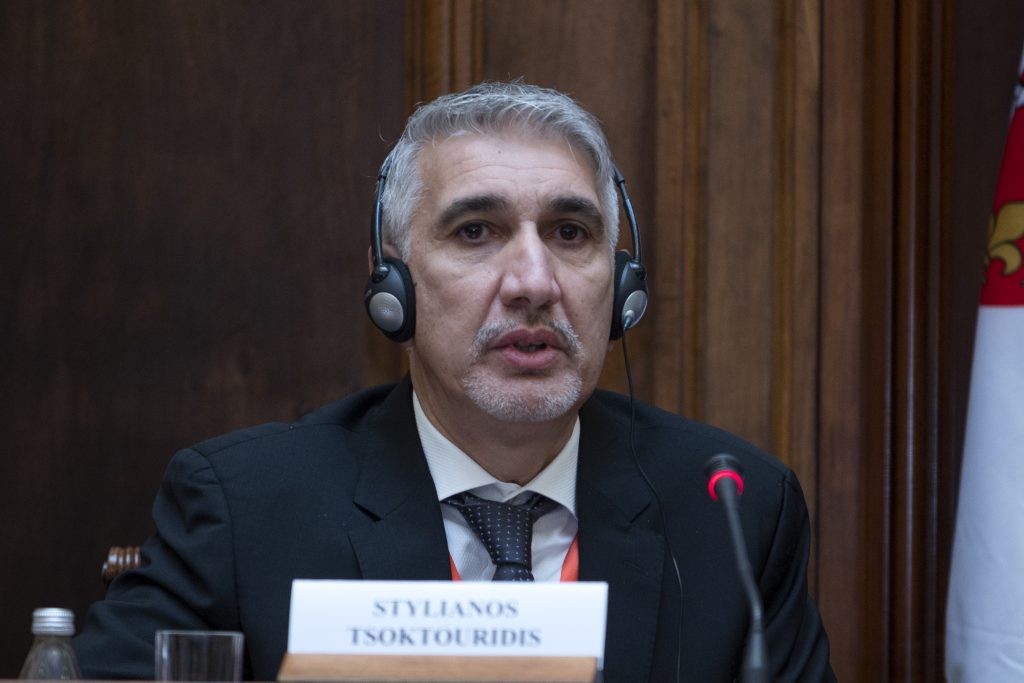
Stylianos Tsoktouridis, MSc, Managing Director of Alumil YU Industry A.D., said that Alumil Group had over 32 years of experience in innovation and creativity because as a multinational company with more than 28 subsidiaries worldwide, it has developed green company awareness and a dynamic environmental agenda, from production processes to final product design.
“We monitor climate change and coordinate our activities with the latest requirements of the relevant authorities. As members of the Council for Green Building of Serbia, we are trying to indirectly contribute to boosting public awareness on this topic. The implementation of our systems, which ensure the ecological declaration of products, can achieve maximum energy efficiency and can lead to obtaining a LEED green certificate,” Mr Tsoktouridis added.
While giving a forecast about next year, the prominent Serbian economic analyst, Nebojša Katić, said that “central banks, including the biggest European and American ones, have announced that they will stop printing money at the end of the first quarter of 2022. They print money by buying huge amounts of securities that countries sell. If this happens as a first step, there will be an increase in interest rates. This entails no huge hikes in the inflation rate. What worries us the most when we look at it from the domestic market’s view is that when interest rates rise, developing countries will be hit the hardest. When they start growing faster than Western countries, it remains to be seen how much the systems will be indebted and how difficult it would be to service their debts,” Mr Katić warned.
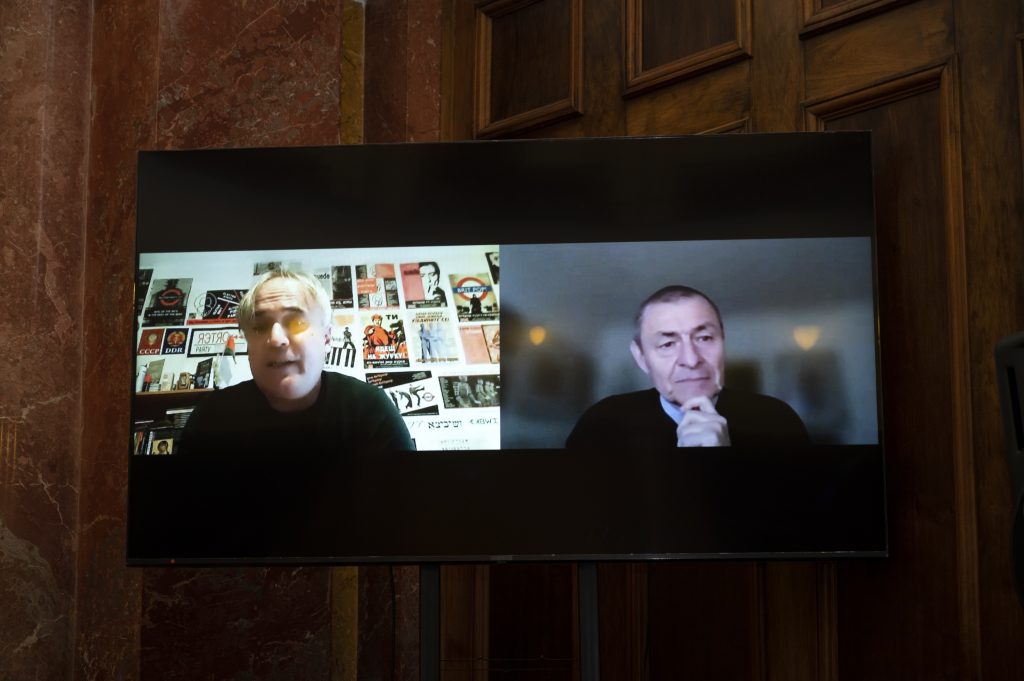
In her presentation “A View from London”, Joan Hoey, from The Economist, spoke about the current situation in the world – from the energy crisis and the first consequences of Brexit to the rise of new power centres, economic turmoil and major changes we can expect in global international relations and in which way will Britain pursue its new significant role.

At the global level, big changes are taking place which is mainly centred on China. New alliances are being formed, with currently the most active and progressive being the USA-Great Britain-Australia and Japan-India-Australia-USA, which aim is to shift the balance of power in the Pacific region, which has been unbalanced for a very long time. This is a big step forward for Great Britain in terms of international relations, where the country is trying to establish itself as a relevant factor outside the EU borders.
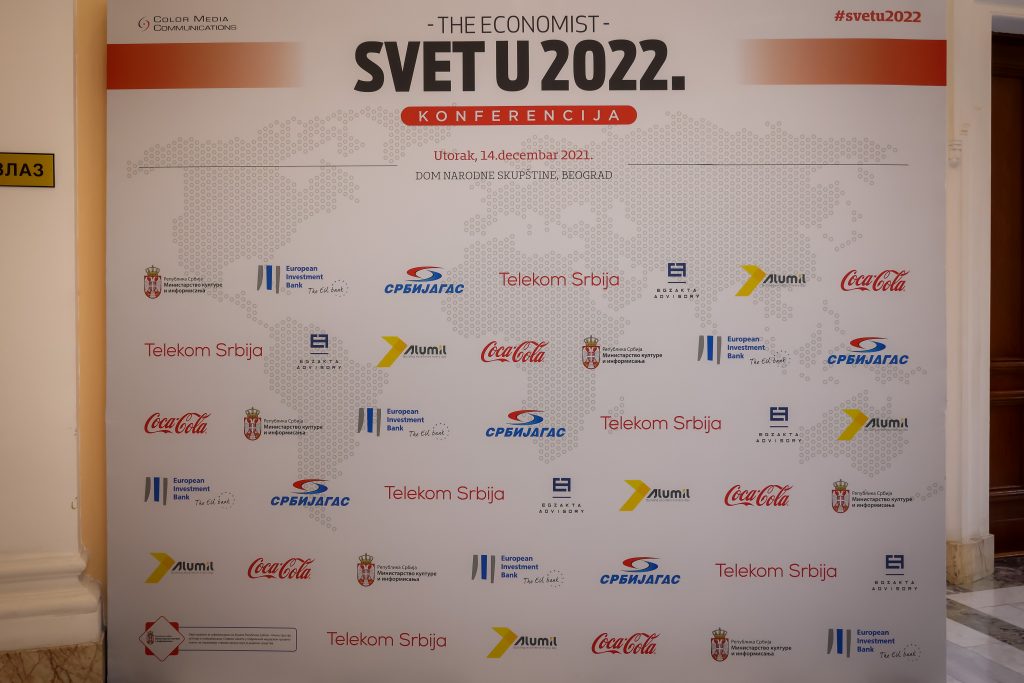
The conference was held with the support of the Ministry of Culture and Information, while the European Investment Bank, Srbijagas, Telekom Srbija, Egzakta, Alumil and Coca-Cola were major contributors.
You can watch the entire conference at Color Media Communication’s YouTube channel.